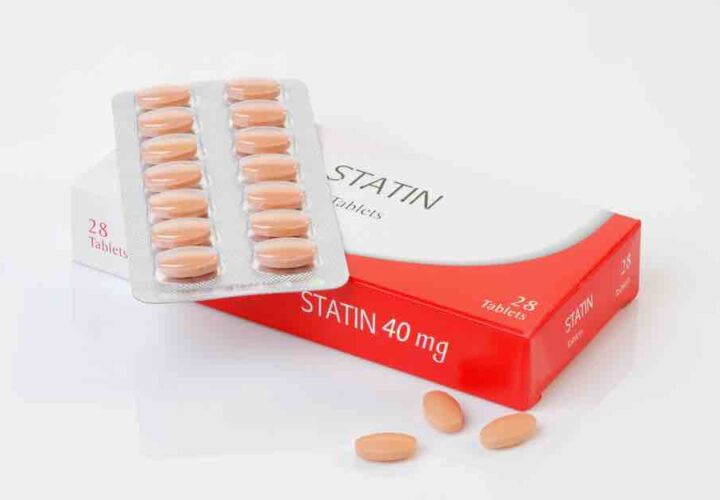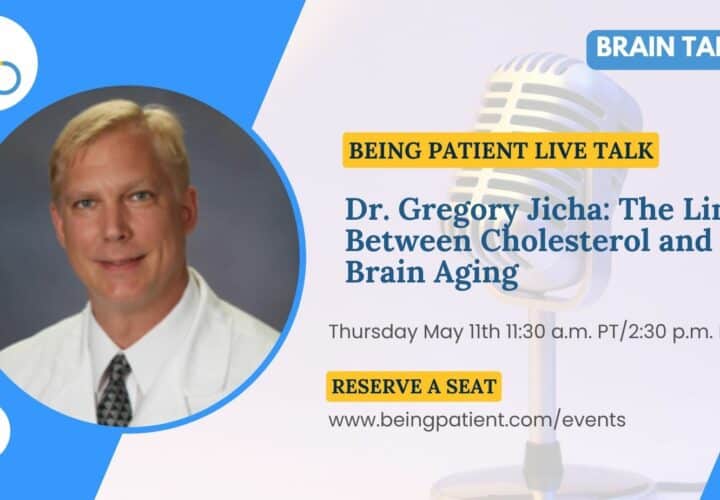Want to lower your dementia risk? Get your cholesterol levels in check. Here's why it works.
“If it’s good for your heart, it’s good for your brain.” This is long-standing wisdom in the medical community, says Dr. Gregory Jicha, a neurology professor at the University of Kentucky. “That’s a simple way for us to remember: things like cholesterol and exercise that prevent heart disease also prevent wear and tear on the brain.”
Indeed, according to the CDC, about 25 million Americans have high cholesterol. Another 86 million people have levels considered “borderline high.” Cholesterol build-up damages the blood vessels and increases blood pressure, and that brings about a domino effect of health impacts. High blood pressure, or hypertension, is known to raise the chances of developing dementia.
The good news: Studies have shown that many of the world’s cases of dementia could be avoided with sweeping improvements to public health. Researchers estimate that, by making healthy lifestyle changes, as many as 40 percent of dementia cases are preventable.
In studies, high cholesterol levels emerged as one of the eight most influential modifiable risk factors for dementia risk — in other words, one of the biggest drivers of risk that people can take control of and change for the better.
In a 2021 study published in Lancet Health Longevity, researchers probed the link between cholesterol and dementia by looking back at people’s cholesterol levels from the past. They broke study participants into two groups: Those with dementia and those without. Then, the researchers pulled data on the participants’ cholesterol levels from a decade or more past. In the group with dementia, they were looking at cholesterol levels well before a diagnosis. What they found was that people who eventually developed dementia had previous cholesterol levels as much as 60 percent higher than the group of people who didn’t go on to develop dementia.
The bottom line: If you’re worried about high cholesterol, it’s possible to get it under control. Here are three ways to get started.
1. Make smart dietary changes
Eating a healthy diet can improve brain health through a variety of mechanisms. The MIND diet is one such culinary powerhouse known to lower blood pressure and cholesterol, and dementia risk. This diet consists of a hefty serving of vegetables, berries, whole grains, beans, legumes, fish, and poultry. In addition, eating a MIND diet means cutting down on red meat, and cheeses. Limiting junk food is another way to cut out unhealthy, high-cholesterol foods.

2. Get your heart pumping
Many people don’t know that exercise can also lower the levels of cholesterol. In particular, moderate exercise like jogging increases the levels of good HDL cholesterol.
More intense exercise also lowers bad LDL cholesterol levels. Studies show that getting healthy levels of cardiovascular exercise can help reduce the risk of dementia.
3. Talk to your doctor about statins and other cholesterol drugs
There are two types of cholesterol: the LDL form which is considered “bad” cholesterol and the HDL form which is considered good. Certain drugs for cholesterol lower the levels of overall cholesterol and LDL cholesterol. Other drugs can help keep HDL cholesterol high. One type of drug often prescribed for high levels of overall cholesterol, statins, reduces the amount of cholesterol produced in the liver while helping remove the cholesterol in the blood.
In turn, studies on statin and dementia have found they appear to reduce a person’s risk of developing Alzheimer’s and other forms of dementia.
There might be more going on here: Scientists are still working to learn the extent to which this class of drugs interacts directly with the brain. What they’ve seen so far: Some statins appear to reduce Alzheimer’s risk by as much as 20 percent.
Fibrates are aAnother important class of cholesterol-lowering drugs. Jicha is currently running clinical trials testing whether they slow amyloid buildup in the brain, halting the progression of Alzheimer’s.
As with any prescription drug, however, doctors and patients need to weigh the potential benefits of statins and fibrates against their side effects. Some experts say their risks are overhyped. “These drugs really do save lives,” Dr. Heather Ferris, a clinical endocrinologist and scientist at the University of Virginia told Being Patient of statins. “I can’t tell you how much time we spend as physicians trying to get cardiac patients back on their statins because of the clickbait they read.”




My Cholesterol is 316. Any chance turmeric will bring it down. I really don’t want to start on a statin. Thanks